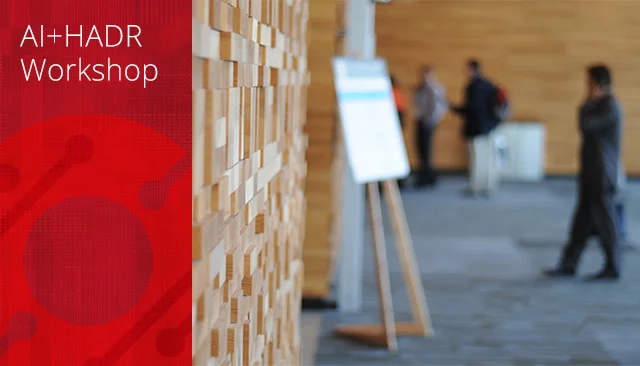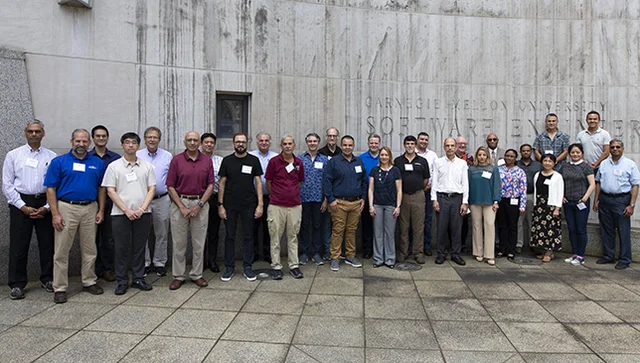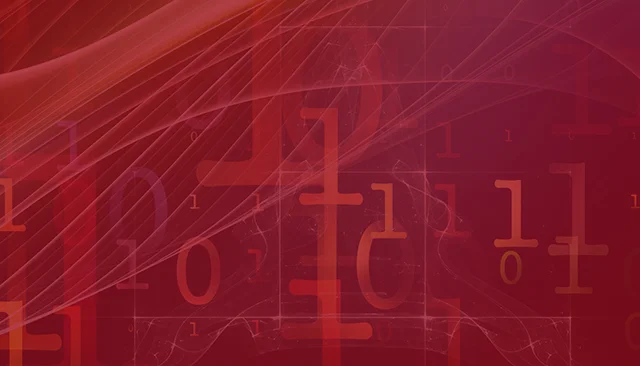SEI to Transition AI Expertise to Humanitarian Assistance and Disaster Response Community

• Article
August 29, 2019—The SEI is transitioning skill gained in its research on how artificial intelligence (AI) can be used to benefit humanitarian assistance and disaster response (HADR) in an upcoming workshop. The AI + HADR Workshop will be among the first to bring together members of the two communities.
Ritwik Gupta, the event’s chair and a machine learning research scientist in the SEI’s Emerging Technology Center (ETC), and Eric Heim, a senior machine learning research scientist at the ETC, are the event’s primary organizers. The one-day AI + HADR Workshop will take place December 13 or 14 at the Thirty-third Conference on Neural Information Processing Systems, or NeurIPS 2019, in Vancouver, B.C.
Last year, Gupta helped a team of Carnegie Mellon University and University of Pittsburgh researchers garner a fifth-place finish in the Defense Innovation Unit Experimental (DIUx) xView 2018 Detection Challenge. Using a publicly available set of satellite images, the xView 2018 competition sought innovative uses of computer vision techniques to better read satellite imagery data in disaster response scenarios. Gupta and others at the SEI have recently helped the DIU develop the next xView competition.
Computer vision and deep learning have already moved out of the demonstration sandbox and into real disaster recovery efforts, having processed images taken in the aftermath of 2018’s Hurricane Michael to help assess building damage. A snake robot developed at Carnegie Mellon University (CMU) was used in a live search operation in Mexico City following the September 2017 Puebla earthquake.
Despite these successes, the use of robots, AI, and ML in HADR scenarios remains in its infancy. Gupta says that a multi-disciplinary group of researchers at CMU, including faculty and students at CMU’s Robotics Institute, CyLab, Machine Learning Department, and Institute for Software Research, is coalescing around this important application of technology. “We’re really pushing to make actual impact.”
The SEI has long helped the U.S. Department of Defense (DoD) apply software-based solutions in the warfighter’s operationally challenging environments. Gupta sees a natural transition of this work to the HADR environment. “Things are messy on the ground, and the smallest bad decision can have the biggest negative impact,” he says. DoD personnel are often the first responders to large-scale natural disasters, and the need for real-time or time-critical, AI-enabled mission systems is just as urgent in the aftermath of catastrophe as it is on the battlefield. The SEI’s efforts to develop AI engineering practices to make such mission systems reliable, scalable, and secure will help those in both domains.
Now the SEI is bringing this same expertise to the larger HADR community. The goal of the AI + HADR Workshop is for AI and machine learning (ML) researchers and HADR workers to educate each other about their domains. “A lot of AI and machine learning projects may work theoretically,” says Gupta, “but the constraints and resources of HADR people on the ground may be vastly different.” By the end of the workshop, Gupta hopes AI practitioners will start to understand how their projects might change to meet the operational constraints of on-the-ground HADR work. HADR participants should gain a sense of what’s possible with the burgeoning AI technology.
The NeurIPS workshop committee selected Gupta’s proposal out of more than 100. One of the selection criteria was an emphasis on diversity, which Gupta feels is critical to the application of AI to HADR. “Humanitarian crisis and disaster response in urban California is different than in the mountains of Nepal,” he says. “If we don’t present a variety of data sources, viewpoints, and restrictions, then we’re not representing the state of the world.”
The workshop’s program will include panel discussions on the topic “Convergence: Two-Way Limitations in Taking Theory to Applications.” The event will also feature spotlight talks on accepted papers. Workshop organizers are currently seeking papers on a variety of topics, from computer vision to disinformation management on social media. “If it’s something in the world of AI that can be applicable to HADR, we want to see it,” says Gupta. The workshop’s call for papers is open through September 16.
Disasters are not waiting for our technology to mature. Gupta hopes the collaboration will bring the most powerful computing techniques to bear in people’s hour of greatest need. “Everyone should walk away with partnerships, new contacts, and a new way of thinking about things.”
To learn more about the AI + HADR Workshop, visit https://www.hadr.ai/.

